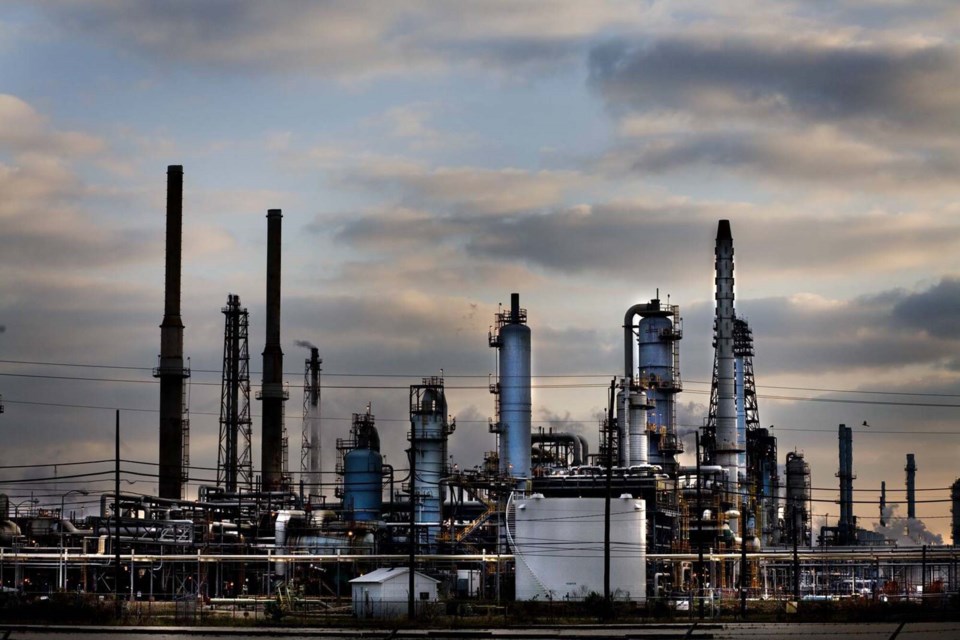Great West Media has received federal government funding to support a reporter to cover climate in Alberta.
Jen Henderson will feature in-depth reporting on where Alberta is at with actions to reduce carbon emissions and generation of less carbon-intensive energy, along with climate issues across the province as they intersect with industry, business, the environment, the economy, communities, and lifestyles.
Henderson has spent the last two years covering issues related to rural Alberta, funded through the Local Journalism Initiative.
If you have a story idea, please email [email protected].
A national oil and gas industry expert is calling Ottawa’s recently released climate targets “ambitious,” and a challenging goal for the sector to achieve.
In March the federal government released its new climate targets, which will force Canada’s oil and gas sector to cut emissions by 42 per cent below current levels by 2030, a move Tristan Goodman, president of the Explorers and Producers Association of Canada — a lobby group representing 140 of Canada’s oil and gas entrepreneurs — called "ambitious."
“If we're really going to work towards some of these numbers, we need every tool put on the table available to [the oil and] gas sector and we need them as quickly as possible,” Goodman said.
The new federal plan was tabled by Environment Minister Steven Guibeault in the House of Commons on March 29. It included specific targets for different sectors, which together will plan to bring down emissions by 42 per cent below 2019 levels, eventually bringing the country to net zero by 2050.
The plan won’t necessarily deter investors from bringing business into Alberta, Goodman said, noting there are positive things happening in the industry, such as expanding pipeline capacity and oil and gas infrastructure, which will draw in investment.
“There will be some things in here that investors would have questions on and there will be some other things that investors would feel quite positive about,” Goodman said.
Oil and gas methane will also be cut by 75 per cent by 2030, according to the new plan, which Goodman said may be challenging.
“We are already on a path of fairly aggressive reduction. It does get more difficult after you pass sort of that 40- to 50-per-cent reduction mark,” Goodman said.
While it is a challenging goal, Goodman said the federal government thinks it is achievable and is willing to work with the industry to provide support and programs to help push companies towards the targets.
To reduce methane, Goodman said the industry has already started with replacing pneumatics, such as pumps and valves, so methane doesn’t leak into the atmosphere.
Alberta is also a world leader in regulating businesses to ensure that if producers are getting a lot of gas back from producing oil, they must keep it and sell it, rather than vent it or flare it off, Goodman said.
Alberta Premier Jason Kenney called the federal government’s climate targets “nuts” on his weekly phone-in radio show on Saturday, April 2, and said the goals would shift energy production from Canada to places such as Russia and OPEC.
"We think implicit in it is a violation of our exclusive power to regulate the production of our resources," Kenney said on the show.
Alberta's Environment Minister Jason Nixon said in an op-ed the "insane" plan would not be accepted by the provincial government.
"The world needs more oil and gas, and Alberta's government is not interested in a transition from jobs in the energy sector laid out in the plan," Nixon wrote.
The federal plan predicts growth in oil production between 21.7 and 33.9 per cent over the next eight years, and Ottawa is hopeful new technology will help reduce overall emissions.
To help cut emissions, the federal government has announced $9.1 billion in new investments, including incentives for zero-emission vehicles (ZEVs); tax breaks for carbon capture, utilization, and storage (CCUS); and to make the electricity grid cleaner.
Goodman said the oil and gas industry hopes to see a tax break for CCUS in the federal budget, announced on April 7, to help make the use of new technology more financially feasible for companies.
Highlights from the federal plan stated that the oil and gas sector is the single largest contributor of greenhouse-gas emissions in Canada, accounting for 26 per cent of national emissions in 2019, totalling 191 megatonnes.
The new plan will see the industry cut emissions to 110 megatonnes by 2030.



